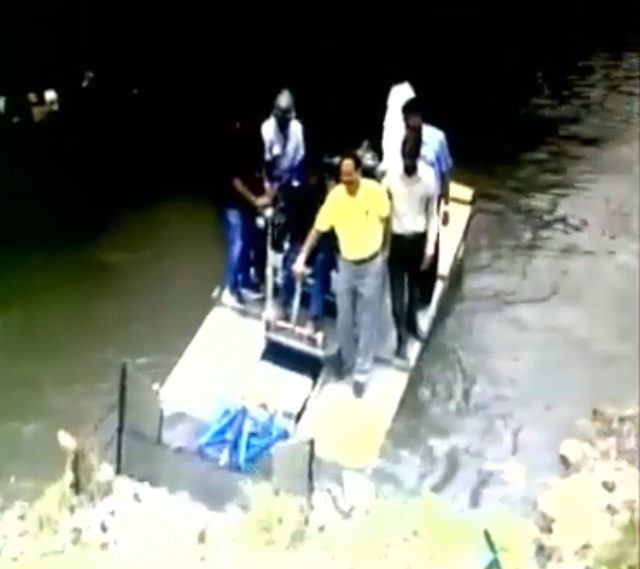
Fact-checkers have debunked a video circulating on Facebook which supposedly shows former president Benigno “Noynoy” Aquino III and members of his cabinet falling into a murky river after a boat they were riding capsized.
The 47 second-long video shows a man in a yellow shirt, similar to those worn by the former president during appearances in the past, struggling from falling off the boat that was about to capsize.
Fact-checkers from international news agency Agence France-Presse through a simple reverse image search of screenshots discovered that incident actually took place in India.
The man in the video has been identified as Surendra Furtado, the mayor of Panaji, India.
The AFP’s fact checkers have also reportedly gotten in touch with Furtado, who revealed that the incident took place when he and staff members were inspecting a new weeding machine to be used in a creek in his city.
The incident was also reported in June 2016 by Press Trust India, a top news agency in the country.
In their report, another Indian official scores Furtado for climbing on the vessel despite her warning against it.
Aquino’s spokesperson Abigail Valte has also denied that the former chief of state is the person falling into water in the video, which has close to 1.5 million views as of this writing.
The video has been circulated in previous years, as evidenced by Facebook posts published in 2016 and 2017.

A version of the video uploaded in 2017 with close to 10,000 views can also be found on YouTube.
Fake news on the rise as election season opens
Following studies on the 2016 United States presidential elections that discovered how false news reports circulated through social media affected the results of the race, initiatives against ‘fake news’ have been set up worldwide.
Various organizations in Brazil have pledged to combat fake news in anticipation of the country’s federal elections in October 2018 by collaborating with the I.T sector. Its parliament has also taken note of the feared rise of fake news, having proposed over 15 bills on fighting the problem.
In Sweden, journalists collaborated with students, researchers and tech entrepreneurs to put up a “pop-up newsroom” that monitored reports during their general election in September 2018.
Facebook, the social media platform through which fake news is believed to thrive in the most, has also pledged to crack down on pages that spread content bearing false information following the criticism it has received in recent years.
It recently opened a ‘war room,’ a division dedicated to monitoring the platform and remove accounts found to have spread fake news particularly during election season in countries where Facebook has a large membership base.









